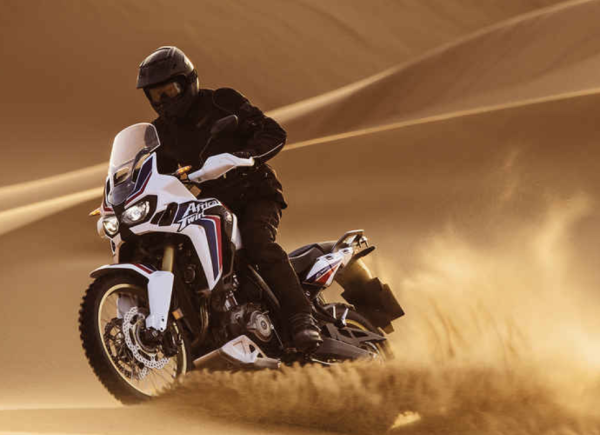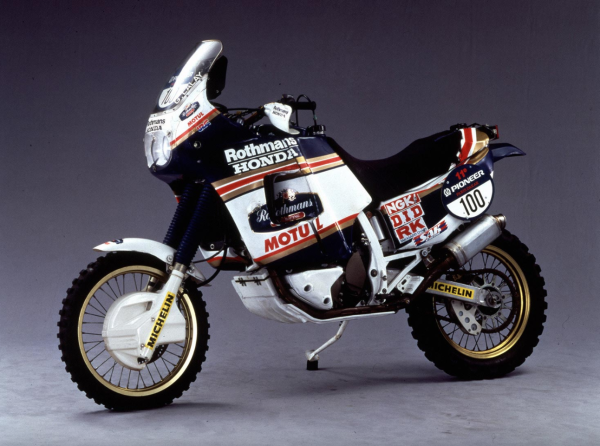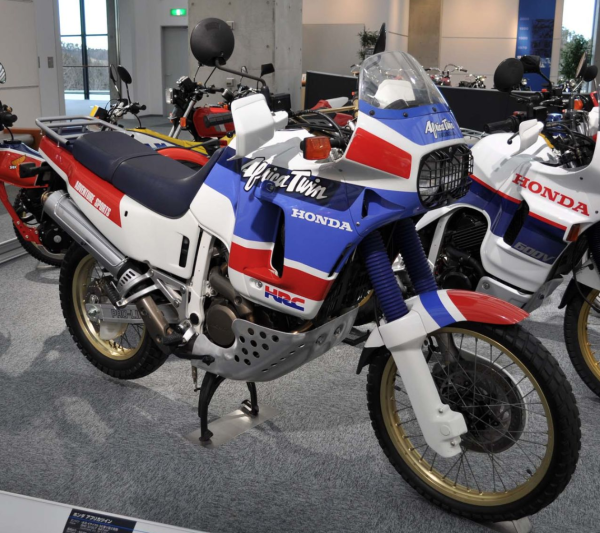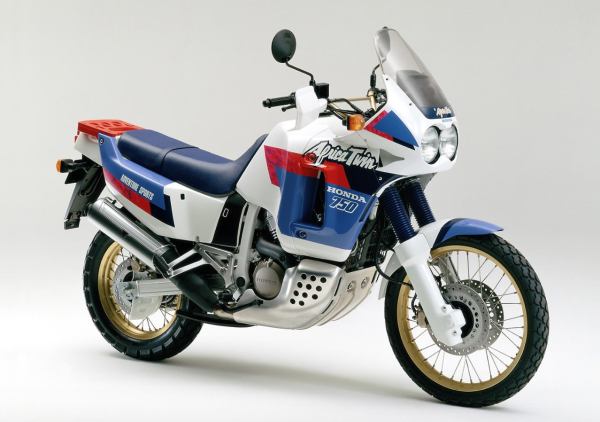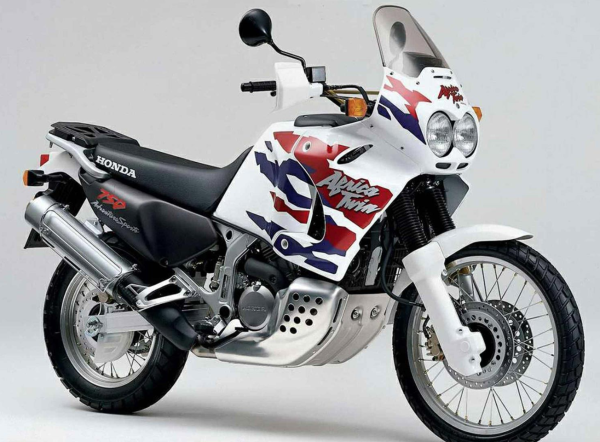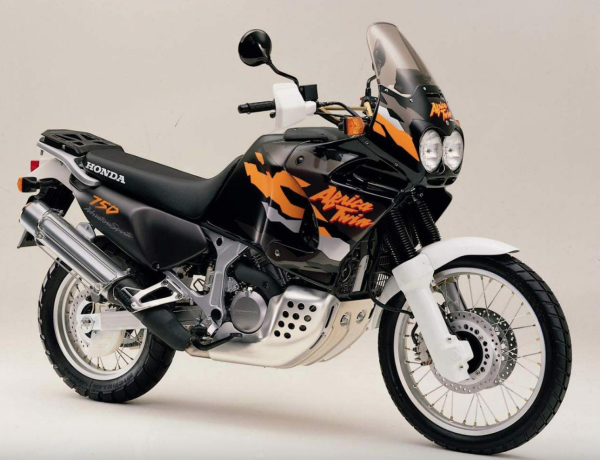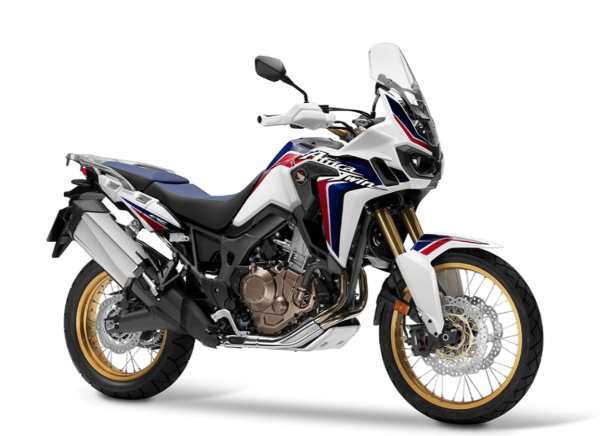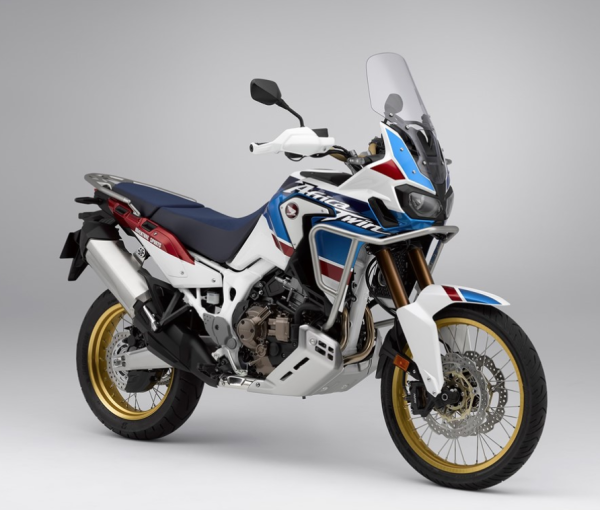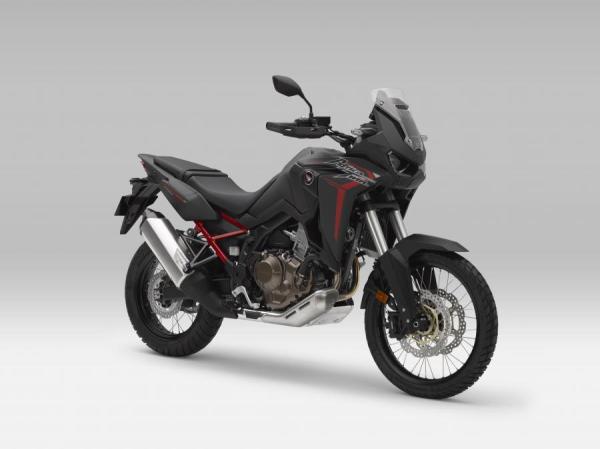The History of the Honda Africa Twin
Visordown looks at the various Honda Africa Twin dual-sport adventure motorcycle models produced throughout history; From 1988 to present.

Member for
54 years 8 monthsThe dual-sport Honda CRF1000L Africa Twin, as we know it today, has a rich and diverse history spanning over thirty years. Throughout this time, the Africa Twin (or AT) can be split into three distinct models, each with differing engine capacities.
The first ‘true’ Africa twin came about in 1988 to 1989 as the 650cc V-twin XRV650; then from 1990 to 2003 as the 750cc V-twin XRV750T; and then from 2016 to present as the 1,000cc parallel-twin CRF1000L. The first road-going 1988 Africa Twin was a replica of the Dakar winning 1986 NXR750 (see below), which won the Dakar a total of four times.
Let’s have a look at how the Africa Twin has evolved over time, finishing up on what we expect from the 2020 model...
Honda XRV650 Africa Twin (RD-03): 1988 to 1989
Built off the popularity of the Paris-Dakar Rally, the XRV650 (RD-03) was launched on the 20th May 1988. Its conception caused somewhat of a sensation, and the model's success would spawn new derivatives right up until the present day.
Tomonon Mogi, the chief designer, wanted the AT to be as close to the factory racing NXR as possible. To this effect, it had a mesh headlight guard; twin aluminium radiators; stainless steel exhaust; ‘auxiliary type’ modular instrument panel; stone guard; quick-release fairly clips; and the HRC ‘tricolore’ colour scheme (as it was built the HRC factory). Creation of huge side-saddle fuel tank almost halted the project because the tank was lower than the carbs and required the use of a fuel pump. Honda also had to incorporate completely new manufacturing techniques to fabricate it - requiring four sheets of steel instead of the conventional three.
XRV650 Honda Africa Twin Quick Specs | |
Engine | 647cc liquid-cooled 52° V-twin |
Bore x Stroke | 79 x 66mm |
Power | 57bhp @ 8000rpm |
Suspension | (F) 43mm Showa fork, 230mm travel; (R) Pro-Link monoshock, 210mm travel |
Seat height | 880mm |
Dry weight | 185kg |
Fuel capacity | 25 litres |
This model wasn't officially exported to the UK, but its successor, the RD-04, was.
Honda XRV750T Africa Twin (RD-04): 1990 to 2003
XRV750 L-N Honda Africa (RD-04) Twin Quick Specs: 1990 - 1992 | |
Engine | 742cc liquid-cooled 52° V-twin |
Bore x Stroke | 81 x 72mm |
Power | 62bhp @ 7500rpm |
Suspension | (F) 43mm Showa fork, 220mm travel; (R) Pro-Link monoshock, 214mm travel |
Seat height | 860mm |
Dry weight | 207kg |
Fuel capacity | 23 litres |
Although arguably the better bike - due to improved engine performance and better brakes - the 750 was built to a lower spec than the 650. Firstly the 750’s production was no longer at the HRC factory and in general its build quality and finish just wasn’t the same as before. No longer was the Africa Twin a true NXR replica. This wasn’t to say it was a bad motorcycle, merely that its focus had changed, and it had gained a little chubbiness.
XRV750 P-S Honda Africa Twin (RD-07) Quick Specs: 1993 -1995 | |
Engine | 742cc liquid-cooled 52° V-twin |
Bore x Stroke | 81 x 72mm |
Power | 62bhp @ 7500rpm |
Suspension | (F) 43mm Showa fork, 220mm travel; (R) Pro-Link monoshock, 214mm travel |
Seat height | 860mm |
Dry weight | 207kg |
Fuel capacity | 23 litres |
Three years after the RD-04, the RD-07 was released. It featured a new frame and bodywork, lower fuel tank and a lower seat - all in the effort to improve responsiveness.
With some smaller changes in 1996 to the front cowl and screen height, the RD-07A would remain the final iteration of the Africa Twin right up until 2003. It was at this time that Honda deleted the model from its range because the 750 AT was simply outgunned by its larger and more powerful competition.
XRV750T Honda Africa Twin (RD-07A) Quick Specs: 1996 - 2003 | |
Engine | 742cc liquid-cooled 52° V-twin |
Bore x Stroke | 81 x 72mm |
Power | 62bhp @ 7500rpm |
Suspension | (F) 43mm Showa fork, 220mm travel; (R) Pro-Link monoshock, 214mm travel |
Seat height | 860mm |
Dry weight | 207kg |
Fuel capacity | 23 litres |
Honda CRF1000L: 2016 to present
Not one to be outdone, Honda brought back the Africa Twin in 2016. Called the CRF1000L and sporting an all-new 998 cc 270° crank, parallel-twin engine, it was an entirely new motorcycle from the wheels up.
The CRF1000L was Honda’s answer to the BMW GS1200, Ducati Multistrada, and Triumph Tiger, and it focused on balancing lightness and power - just like the machines of old.
However, unlike the machines of old, the new AT featured both manual clutch, and dual clutch transmission variants (DCT).
In 2018 the model was upgraded to feature 3 new riding modes, throttle by wire control, improved intake and exhaust tuning, and more Honda Selectable Torque Control (HSTC) options. During this time, Honda also released a beefed-up Adventure Sports model (see below), which had the same updates, plus: Improved wind protection, greater tank range and longer suspension travel - improving off-road capabilities.
Modern features include:
Rally style LCD dash
A full LED light suite
Switchable ABS (on/off)
7 levels of Honda Selectable Torque Control (HSTC) + engine braking control
Fireblade inspired camshaft design
Adjustable seat height (by 20mm)
CRF1000L Honda Africa Twin Quick Specs 2016 - present | |
Engine | 998 4-stroke 8-valve Parallel Twin with 270° crank and uni-cam |
Bore x Stroke | 92 x 75.1mm |
Power | 94bhp @7,500rpm |
Suspension | Front: Showa 45mm cartridge-type, 230mm stroke Rear: Pro-Link with gas-charged damper, 220 mm travel |
Seat height | 280 - 250mm |
Dry weight | 208kg std, 212kg ABS, 222kg DCT |
Fuel capacity | 18.8 litres |
2020 Honda CRF1100L Africa Twin
A little while back Honda released this teaser (see below), but recently new details have emerged and been confirmed by Honda.
The 998cc parallel-twin motor has been redesigned, and in its place sits a 1084cc unit which kicks out 101bhp and 105Nm of torque. The new bike is slimmer and lighter thanks to a new frame, subframe and CRF450 inspired swing arm design.
Like its predecessor, the standard 2020 Africa Twin comes in manual and DTC variants. The more off-road-focused Adventure sport model is also still available.
The 2020 CRF1100L is packed with tech and includes a six-axis IMU, TFT touch screen, Apple CarPlay and Bluetooth Connectivity. It has four default riding modes which include; Off-road, tour, urban and gravel; two customisable user modes; and three levels of wheelie control.
For more information about the Standard CRF1100L and CRF1100L Adventure Sports click the links.
Honda CRF1100L Africa Twin Quick Specs 2020 | |
Engine | |
Bore x Stroke | 92mm x 81.5mm |
Power | 101bhp @7,500rpm |
Suspension | Rear: Pro-Link with Showa gas-charged damper, hydraulic dial-style preload adjuster and rebound damping adjustments, 220 mm rear wheel travel |
Seat height | 850/870mm (low seat option 825mm, high seat option 895mm) |
Dry weight | 226kg (DCT 236kg) |
Fuel capacity | 18.8 litres |
